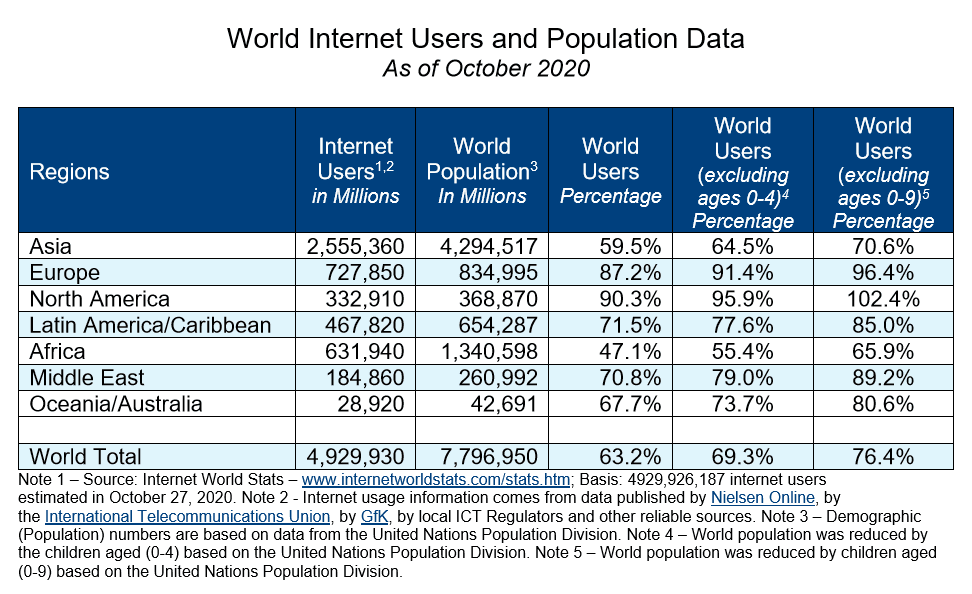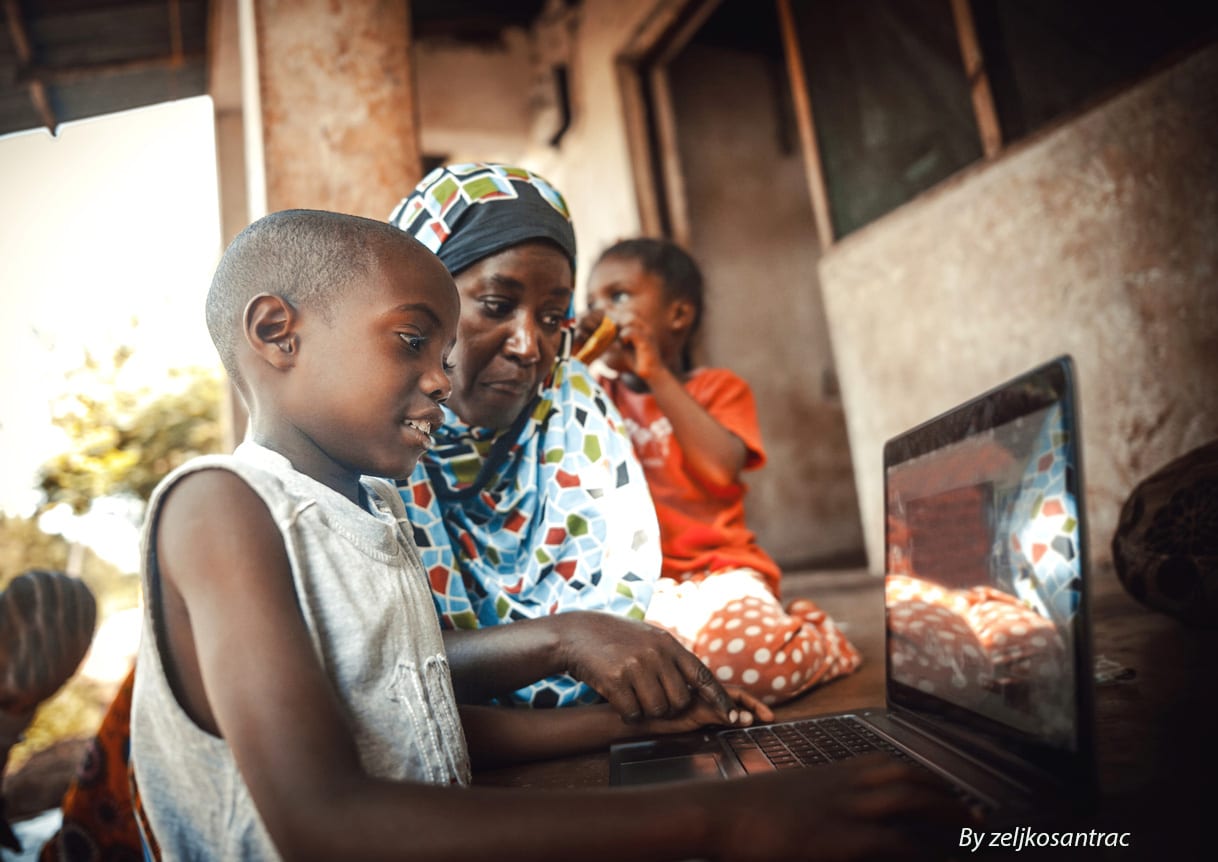
Dec 07, 2020 A Changing Paradigm for Global Engagement
The global growth of the number of internet users is remarkable. According to Internet World Stats, 63.2% of the world’s population used the internet as of October 2020. If children aged 0-4 are removed from the calculation, that percentage increases to 69.3%. If children aged 0-9 are excluded, the percentage increases to 76.4% (see table below).
The ability of an organization to engage the world to increase awareness of what can be done individually and collectively to effect solutions for the environment, for wildlife and habitat protection, for land conservation, and for animal and human well-being is both exciting and frightening. Internet use is indeed revolutionizing our world, and many would agree that our world has become a “Global Village,” to use a term first popularized by Marshall McLuhan, a Canadian media theorist. What that term means and, whether it adequately conveys what is happening, merits more discussion. WellBeing International prefers to speak of “global communities.”
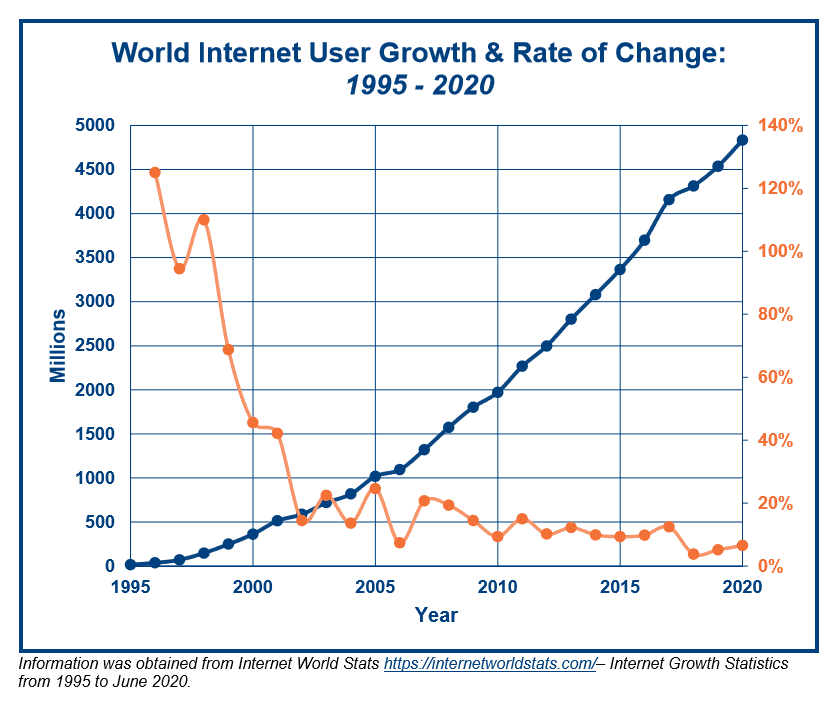 It behooves us to exercise some caution about the statistics of internet use, especially those for global use. Measuring internet use (for example, how frequently and how much time on the internet should constitute “use”) is a challenge and the numbers may be confounded by conflicting definitions and lack of transparency of methodology amongst other factors. However, most of the different sources of global user statistics are relatively consistent and nobody disputes that there has been a enormous increase in internet users over the past quarter century (see chart).
It behooves us to exercise some caution about the statistics of internet use, especially those for global use. Measuring internet use (for example, how frequently and how much time on the internet should constitute “use”) is a challenge and the numbers may be confounded by conflicting definitions and lack of transparency of methodology amongst other factors. However, most of the different sources of global user statistics are relatively consistent and nobody disputes that there has been a enormous increase in internet users over the past quarter century (see chart).
The significant increase in internet access presents tremendous opportunities but also poses great risks. The following examples are illustrative of such risks:
- Extreme speech has been recognized as a significant risk to users. How to define “extreme” speech and then control it has been and continues to be hotly contested by governments, the major Western internet platform providers (including Facebook, Microsoft, Twitter and YouTube), the media and the public. An interesting article by Danielle Keats Citron, published by the Cato Institute, describes the history and current state of the extreme speech issue and proposes steps to address the challenge.
- Government censorship of the internet is a major risk to internet users. A recent Guardian editorial provides an overview of attempts to censor internet use. As global communities and individuals use the internet to seek information, voice concerns and demand action, government shutdowns, restrictions and increased controls are limiting public efforts. As noted in the editorial, nowhere is there a better example of the effort to control access than China.
- Finally, it is not at all easy for an internet user to determine the authority, accuracy, reliability, objectivity, and currency (timeliness) of information. Educating consumers how to make better use of the internet is an enormous challenge.
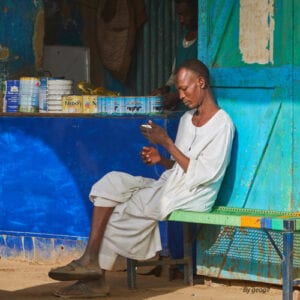 Although there are significant risks associated with acquiring information on the internet, the potential of the medium to reach millions of consumers cannot be denied. To have the opportunity on a global scale to provide credible and trusted information to assist individuals and their communities to make choices that benefit themselves as well as other people, animals and their environment is remarkable. For those of us entering the work force before 1995 (the early days of the internet), organizing movement initiatives, advocating a political position, or simply calling for volunteers, involved a heavy reliance on the telephone, printed brochures, and licking stamps (no-lick versions then) for direct mailings. Most campaigns were local, regional, or national; few campaigns were truly global.
Although there are significant risks associated with acquiring information on the internet, the potential of the medium to reach millions of consumers cannot be denied. To have the opportunity on a global scale to provide credible and trusted information to assist individuals and their communities to make choices that benefit themselves as well as other people, animals and their environment is remarkable. For those of us entering the work force before 1995 (the early days of the internet), organizing movement initiatives, advocating a political position, or simply calling for volunteers, involved a heavy reliance on the telephone, printed brochures, and licking stamps (no-lick versions then) for direct mailings. Most campaigns were local, regional, or national; few campaigns were truly global.
WellBeing International recognizes the potential reach that the internet provides and is committed to people who seek out objective, credible and accurate information on how to protect and make our world a better place. This effort is approached on two levels, the first – Global Awareness for global communities – incorporates our efforts to become viewed as a good source of accurate and nuanced information and analysis. Our newsletters, our website and our WellBeing Studies Repository (providing access to full-text articles and reports) are examples of the information sources we are building and providing to interested consumers and their communities.
The second – our Feel Better initiative – is targeted to individuals who seek information to make better individual choices that would lead to a more sustainable world. These choices may require small or large efforts, but every choice leads to a more sustainable world for people, animals and the environment counts. This approach assumes that many small steps by many individuals will produce significant global change. Individual choices will drive demand for more renewable energy sources, more efficient automobiles, healthier air, and more protection for wildlife and their habitats. The internet will provide not only the means for individuals to gain information but also to amplify their demands.
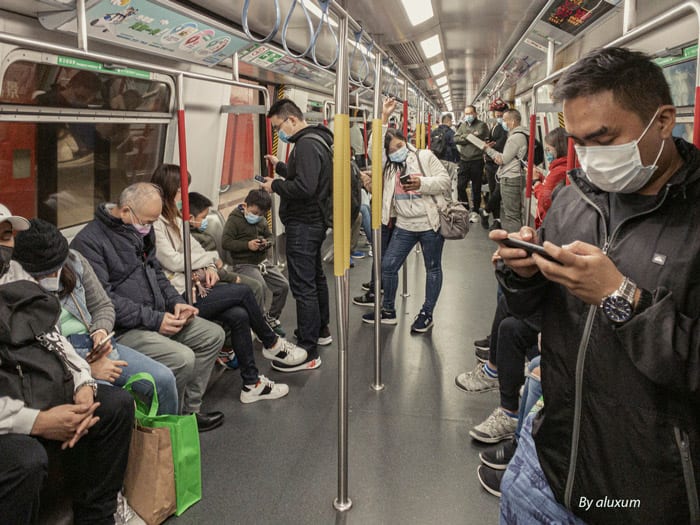
Despite the risks and challenges associated with the internet, there has never been a greater opportunity to tap into world-wide communication channels to reach global communities and individuals. We must demand that organizations using the internet adhere to appropriate standards of accuracy and reliability. WellBeing International encourages individuals to use our material to make informed choices and to support demands for creative solutions that will make our world a better place for people, animals, and the environment. National and local governments, businesses, multilateral agencies, and nonprofit organizations must all respond to public demand. How long it takes for them to do so will depend on the volume of the voices who demand the change.
Meanwhile we must address the risks associated with the internet and the efforts of governments to contain those risks. We leave the last words to Citron:
“Companies can and should adopt prophylactic protections designed to contain government overreach and censorship creep for the good of free expression. Censorship creep can be contained with definitional clarity, robust accountability, detailed transparency, and ombudsman oversight.”



